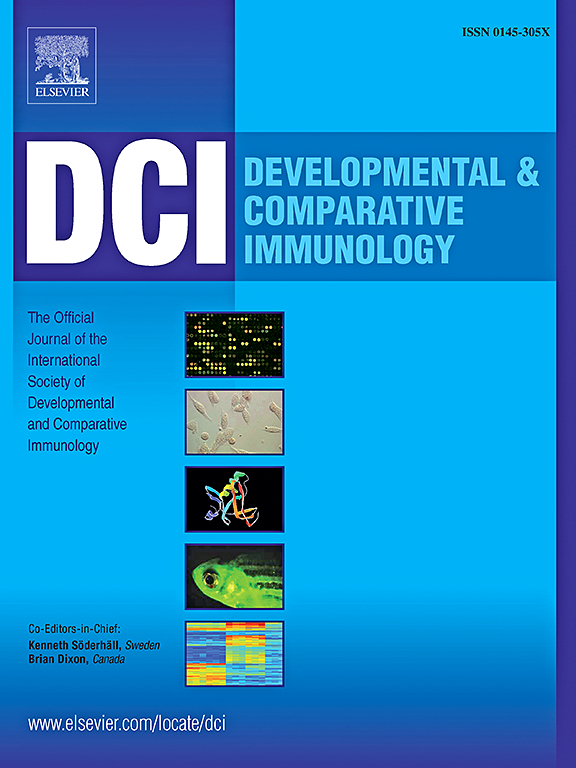Oridonin inhibits SGIV infection by regulating glycolipid metabolism and inflammatory response
IF 2.7
3区 农林科学
Q1 FISHERIES
引用次数: 0
Abstract
Singapore grouper iridovirus (SGIV) is a significant infectious disease in the grouper aquaculture industry. Currently, there is no effective drug available to prevent or treat SGIV. Oridonin (Ori) is a naturally occurring compound derived from Rabdosia rubescens, exhibiting various biological activities, including anti-tumor, anti-inflammatory, and antioxidant properties. In this study, we examined the anti-SGIV activity of Ori and its potential mechanism of action in vitro. The study results indicate that Ori effectively inhibits SGIV infection at various concentrations. Further studies reveal that Ori inhibits the formation of lipid droplets induced by SGIV infection. Additionally, Ori suppresses the SGIV-induced up-regulation of fatty acid synthesis-related genes (SREBP1, ACC1, SCD1, FASN) and glycolysis-related genes (GLUT1, GLUT2, HK2, PDHX). The mTOR pathway plays a crucial role in regulating glycolipid metabolism. Our findings indicate that Ori suppresses the phosphorylation of AKT and mTOR proteins. Further research revealed that the activation or inhibition of mTOR significantly impacts SGIV protein production and the expression of genes related to glycolipid metabolism. In addition, Ori effectively inhibits the up-regulation of NLRP3, ASC, Caspase-1, and pro-inflammatory cytokines induced by SGIV infection. In conclusion, our experimental findings indicate that Ori effectively inhibits SGIV infection by regulating glycolipid metabolism through the AKT/mTOR pathway and by suppressing the inflammatory responses triggered by SGIV infection.
求助全文
约1分钟内获得全文
求助全文
来源期刊
CiteScore
6.20
自引率
6.90%
发文量
206
审稿时长
49 days
期刊介绍:
Developmental and Comparative Immunology (DCI) is an international journal that publishes articles describing original research in all areas of immunology, including comparative aspects of immunity and the evolution and development of the immune system. Manuscripts describing studies of immune systems in both vertebrates and invertebrates are welcome. All levels of immunological investigations are appropriate: organismal, cellular, biochemical and molecular genetics, extending to such fields as aging of the immune system, interaction between the immune and neuroendocrine system and intestinal immunity.

 求助内容:
求助内容: 应助结果提醒方式:
应助结果提醒方式:


